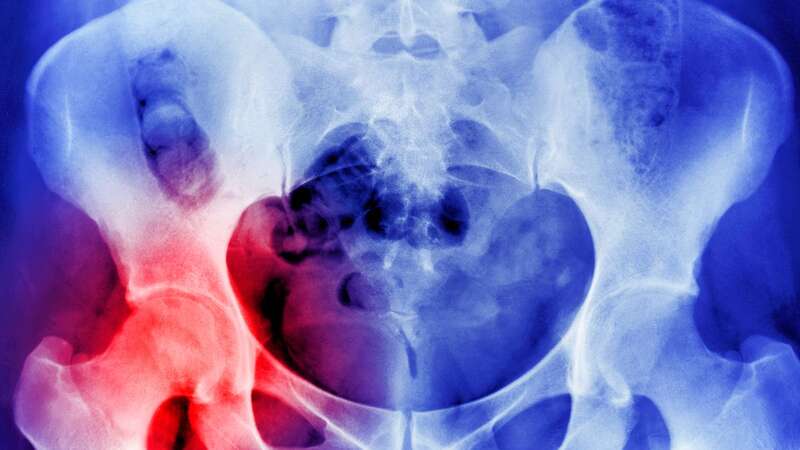
Joint replacement operations for hips and knees have become quite commonplace – but it’s a disgrace that we’re still at the mercy of a postcode lottery.
The availability of this surgery in England is subject to several factors – socio-economic ones for starters.
And a University of Bristol-led study of hip and knee ops over a 10-year period concluded that care providers must take more action to ensure there’s equal access to them.
Joint replacements are cost-effective operations and are performed frequently all over the world.
As populations age and obesity rises, the burden of wear and tear on joints makes the need for these surgeries greater – stretching staff, facilities and budgets.
 Hospitals run out of oxygen and mortuaries full amid NHS chaos
Hospitals run out of oxygen and mortuaries full amid NHS chaos
And people living in the most deprived areas have the biggest need for surgery.
Yet inequalities are not new – they were reported more than a decade ago.
NHS England has tried to cope, in part by delivering some of its publicly funded orthopaedic services within the private sector.
Nevertheless there’s growing financial strain on the NHS. Dr Erik Lenguerrand, senior lecturer in medical statistics at Bristol University, worked with colleagues to merge data from the National Joint Registry and Office for National Statistics to investigate inequalities in joint replacement for osteoarthritis.
They identified all primary hip and knee replacements for osteoarthritis from 2007 to 2017 in England (675,342 hip and 834,146 knee replacements).
Despite an overall improvement in the number of operations performed and less geographical variation in rates of surgery, inequalities between the most and least affluent areas remain substantial.
And inequalities between the most and the least affluent areas have remained fairly constant.
For knee replacement, there were social deprivation inequalities only for privately funded procedures, whereas for hip replacement, evidence of disparities was observed for publicly and privately funded procedures.
These findings could help healthcare commissioners identify how joint replacement should be provided on the NHS in order to best address these disparities.
Dr Lenguerrand said: “Our study has shown that over the last decade, socioeconomic inequalities in access to hip and knee replacement surgery remain wide, where those living in the most deprived areas have the least access to this surgery, even though they have the greatest clinical need.”
 Mystic Mag's 2023 predictions include strikes, sleaze, self pity and separation
Mystic Mag's 2023 predictions include strikes, sleaze, self pity and separation
The great pity is joint replacement really isn’t complicated – and results are excellent.
Most patients feel they have a new lease of life so that benefit shouldn’t be restricted by inequalities.
Read more similar news:
Comments:
comments powered by Disqus

































